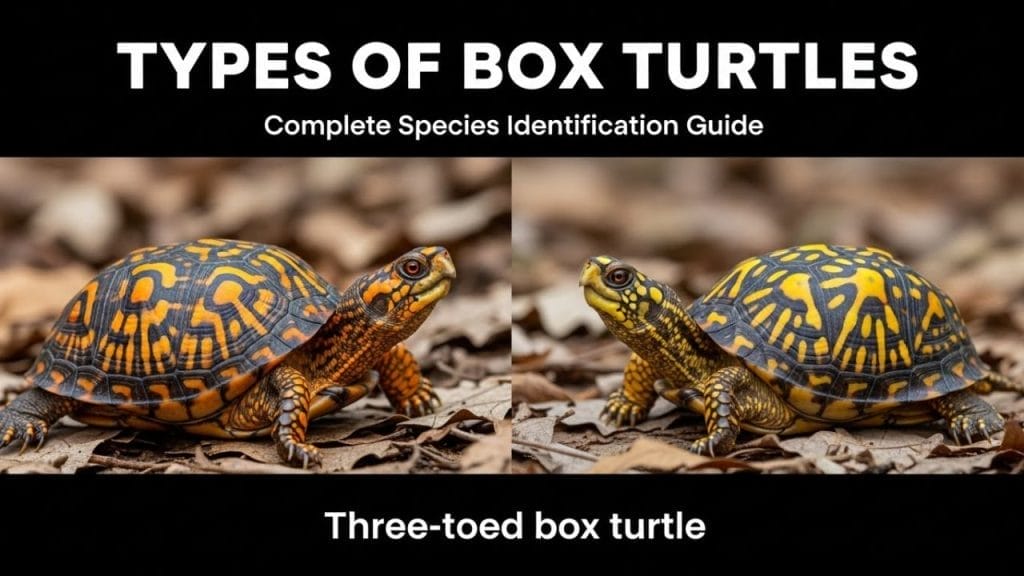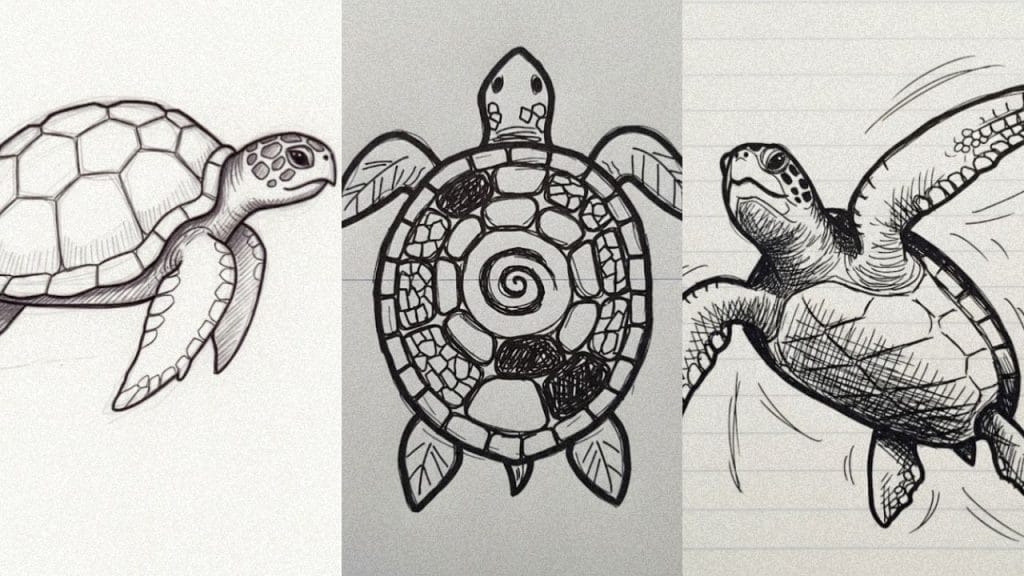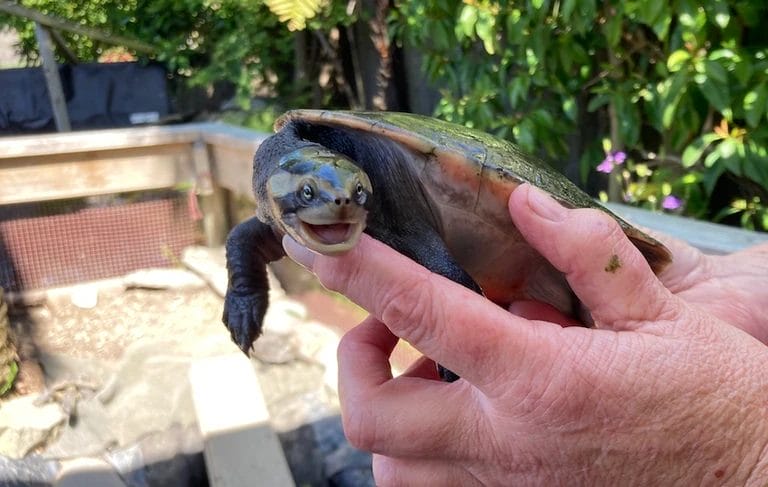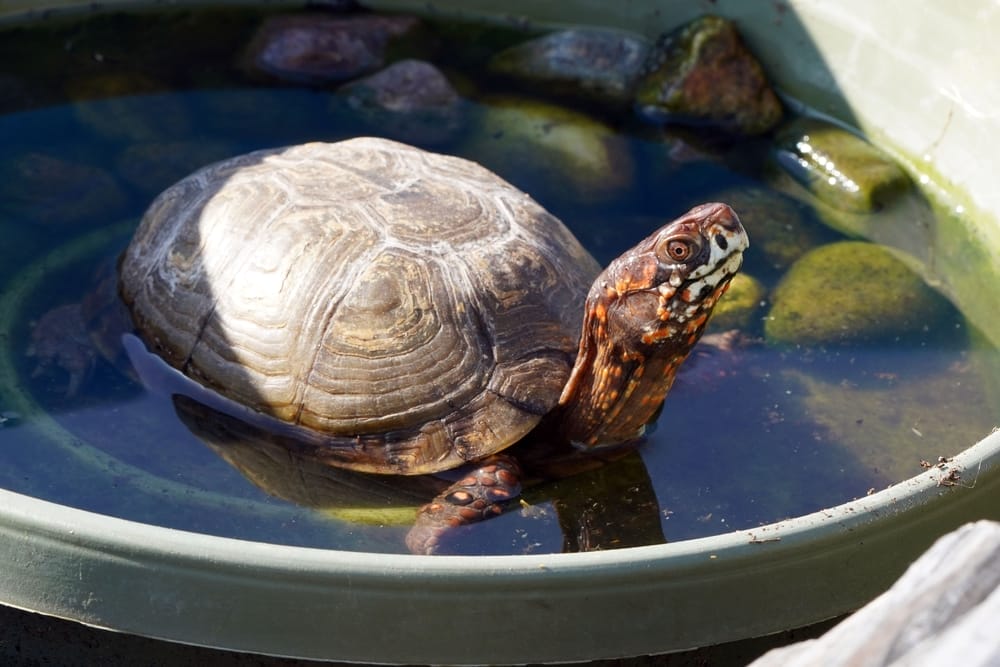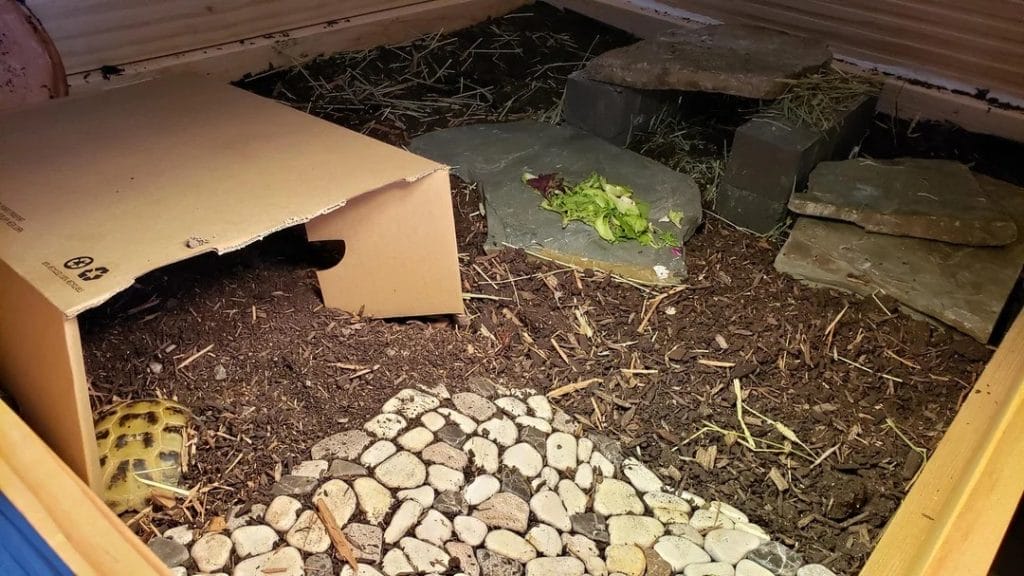The Startling Tortoise Behavior You Should Never Ignore

This post was created with help from AI tools and carefully reviewed by a human (Muntaseer Rahman). For more on how we use AI on this site, check out our Editorial Policy.
Something Off About Your Tortoise? Don’t Brush It Off.
Tortoises aren’t dramatic. So when they start acting weird, I pay attention.
They won’t throw tantrums or cry for help. But they will show signs—quiet ones. The problem is, most people miss them until it’s too late.
I’ve made that mistake before. A small change in behavior led to a big health issue I could’ve caught earlier.
That’s why this post exists. To help you notice the strange, subtle, or downright odd behaviors that might mean something’s wrong—or sometimes, totally normal.
Let’s go through the ones you should never ignore—and a few that look scary but aren’t.
1. Know What “Normal” Looks Like First
You can’t spot what’s wrong unless you know what’s right.
A healthy tortoise will eat regularly, move around a bit during the day, bask, dig occasionally, and rest a lot. They’ll have a daily rhythm, even if it’s a slow one.
If your tortoise is suddenly hiding all day, skipping meals, or acting more restless than usual—that’s not just “a mood.” That’s your cue to investigate.
2. The Neck-Stretching Thing Might Not Be Cute
You see your tortoise stretching its neck way out, over and over.
Sometimes it’s just curiosity. But if it’s happening a lot—especially with open-mouth breathing or weird noises—it could be a sign of a respiratory infection.
Don’t wait around to see if it clears up. Breathing issues in tortoises can get bad fast. If you notice this often, call a vet.

This Hilarious Turtle Book Might Know Your Pet Better Than You Do
Let’s be real—most turtle care guides feel like reading a textbook written by a sleep-deprived zookeeper.
This one’s not that.
Told from the snarky point of view of a grumpy, judgmental turtle, 21 Turtle Truths You’ll Never Read in a Care Guide is packed with sarcasm, sass, and surprisingly useful insights.
And hey—you don’t have to commit to the whole thing just yet.
Grab 2 free truths from the ebook and get a taste of what your turtle really thinks about your setup, your food choices, and that weird plastic palm tree.
It’s funny, it’s honest, and if you’ve ever owned a turtle who glares at you like you’re the problem—you’ll feel seen.
3. Digging Isn’t Just a Quirk
Some digging is fine. Especially for species like Russian tortoises—they’re born to burrow.
But if your tortoise is digging nonstop, trying to escape, or pushing against corners, something’s off. It could be too hot, too bright, too boring, or just plain stressful in the enclosure.
Add some hiding spots, adjust temps, and check your lighting setup. If they’re still frantic, dig deeper—no pun intended.
4. Walking in Circles? That’s Not Normal
If your tortoise keeps circling the same spot or walking in loops, it’s not exploring. It could mean vision issues, inner ear problems, or even neurological trouble.
Sure, sometimes they move weirdly when they’re excited or confused by their reflection. But if the circling keeps happening, especially with bumping into things—don’t guess. Get it checked.

5. Wall-Climbing Like It’s a Mission
Tortoises aren’t built for rock climbing, but some still try to scale their enclosure walls like they’ve got somewhere better to be.
This usually means they’re bored, stressed, or hate their setup. Too small, too plain, or just not stimulating enough.
Add rocks, safe climbing spots, or rearrange their space. A change in layout can do wonders.
6. That Hissing Sound Isn’t Personal
When a tortoise hisses, it’s not mad at you. It’s just pushing air out as it pulls into its shell fast.
Still, frequent hissing means they’re getting startled too often. Maybe there’s too much noise, handling, or movement near their enclosure.
Give them some peace. They don’t thrive in chaos.

7. Messing With Poop? Gross, But Telling
Some tortoises mess with their poop. It’s weird to us, but not always a problem for them.
If it’s occasional, ignore it. But if they’re doing it often—sniffing, licking, or trying to eat it—it might point to a nutrition issue or mineral deficiency.
Check their diet. You might need to add more fiber, calcium, or variety.
8. Rubbing Their Shell on Stuff
If your tortoise keeps rubbing its shell against rocks, walls, or decorations, it might just be scratching an itch—or trying to loosen scutes before a shed.
But don’t assume it’s nothing. Sometimes it’s a sign of irritation, fungal issues, or even shell rot.
Look closely. If the shell has soft spots, discoloration, or odd smells, don’t wait. Handle it early.

9. Sudden Change in Eating Habits
Tortoises don’t usually binge or fast. They eat slow, steady, and mostly at the same times each day.
If yours stops eating, eats way less, or suddenly refuses their favorite foods, something’s off. Stress, illness, wrong temps, or a poor diet could be the cause.
Start by checking heat, UVB, and food freshness. If everything checks out and they’re still not eating—call a vet.
10. Wandering at Night? Red Flag
Tortoises are not night owls. They’re diurnal. That means they sleep when it’s dark.
If yours is pacing at night, scratching the walls, or digging nonstop after lights out, that’s not curiosity. It’s stress. Wrong light cycle, noisy environment, or improper temperature can cause this.
Fix the setup. Keep nights dark and quiet. If the behavior doesn’t stop, look deeper.

11. Acting Social? Don’t Be Too Shocked
Tortoises aren’t exactly cuddle bugs, but some do show a bit of social behavior.
They might walk toward you, follow you around, or seem curious when you’re nearby. That’s not them asking for a hug—it’s them recognizing patterns, like feeding time or familiar faces.
If they act this way, good. It means they feel safe. Just don’t overdo the interaction.
12. Rain Makes Them Weirdly Happy
Some tortoises perk up when it rains. They might stomp around, soak in puddles, or dig in damp soil.
This isn’t random. In the wild, rain means cooler temps and fresh food. That instinct sticks, even in captivity.
You can mimic this now and then with gentle misting or a shallow soak. Just keep the area clean to avoid bacterial growth.

13. When They Look Straight-Up Annoyed
Some tortoises just have a naturally cranky face. But if yours suddenly looks tense—tight neck, pulled-in limbs, narrowed eyes—it could mean they’re uncomfortable.
Bad lighting, wrong temps, too much handling, or even loud noise can set them off.
If that grumpy look sticks around, start checking the setup before assuming it’s just their “resting tortoise face.”
14. Subtle Clues That Something’s Wrong
Not all sicknesses scream for attention. Sometimes it’s just a slower walk, less appetite, or spending too much time in hiding.
Lethargy, runny nose, swollen eyes, or uneven shell growth are also red flags.
Don’t wait to “see what happens.” If something feels off, trust that instinct and call a vet.
15. Keep Their Brains Busy Too
Tortoises can get bored. And bored tortoises start pacing, climbing, or digging non-stop.
You don’t need to build a jungle gym, but mix things up—change the layout, add safe objects, introduce new textures.
Even a simple rock pile or log can make a difference. Keep it natural, but keep it interesting.
16. Not Every Weird Move Is a Problem
Sometimes they’ll wiggle, sneeze, or freeze in the oddest positions—and it means nothing.
You don’t have to panic every time they act strange. Learn your tortoise’s habits. What’s normal for one might be weird for another.
Stay calm, observe, and don’t go straight into emergency mode unless it truly feels off.
17. Final Thoughts: Don’t Be a Passive Owner
Tortoises won’t ask for help. They’ll just show signs—quiet ones.
Your job is to notice. That’s what makes the difference between a tortoise that thrives and one that just survives.
Watch them. Learn them. And don’t ignore the little things.
They matter.

About Author
Muntaseer Rahman started keeping pet turtles back in 2013. He also owns the largest Turtle & Tortoise Facebook community in Bangladesh. These days he is mostly active on Facebook.


